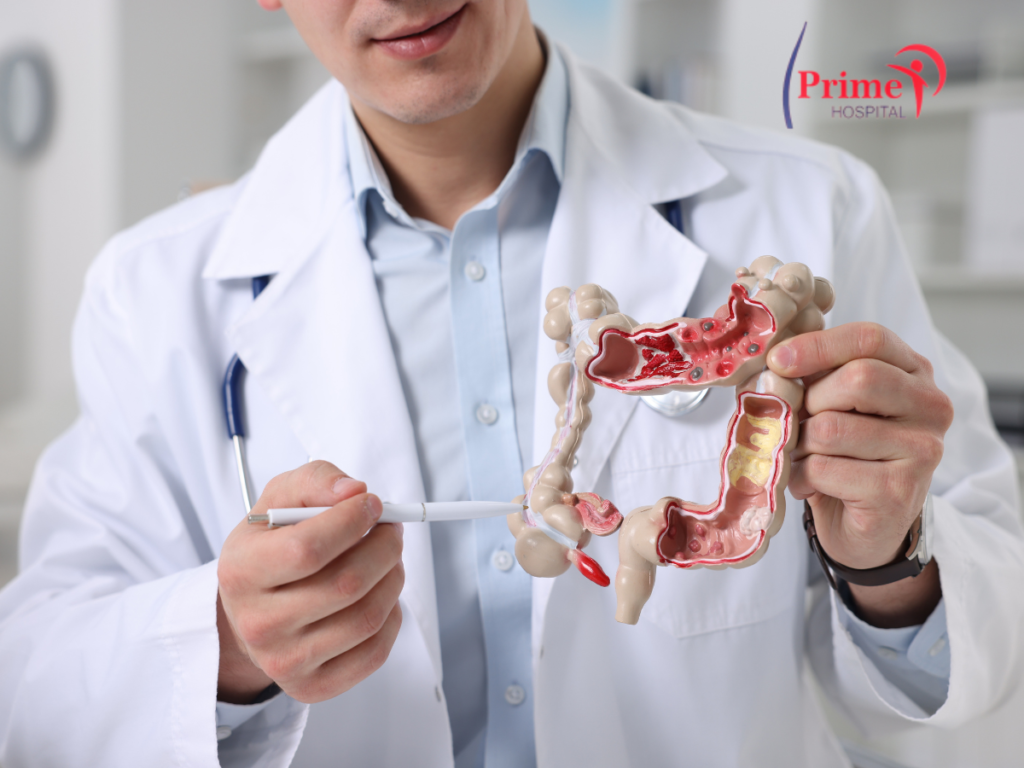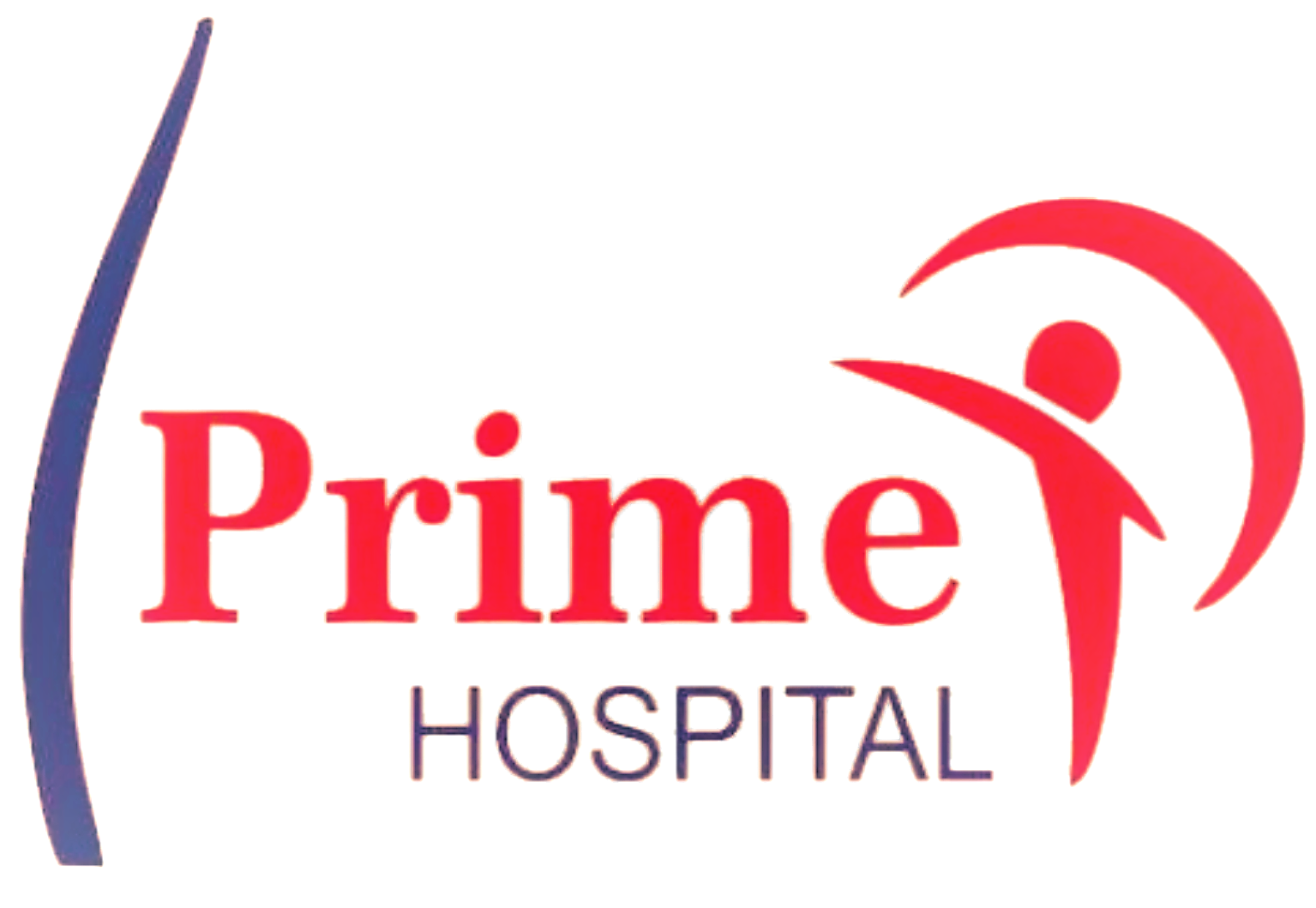When it comes to digestive health, early and accurate diagnosis is essential to effective treatment. At Prime Hospital, the Gastroenterologist Doctor in Panipat is equipped with state-of-the-art diagnostic tools, ensuring that every patient receives a detailed assessment and a precise diagnosis. The comprehensive suite of advanced diagnostic tools at Prime Hospital allows the gastroenterology team to detect, understand, and treat various digestive disorders, ranging from common issues to complex conditions.
1. Endoscopy
Endoscopy is a minimally invasive procedure that plays a key role in diagnosing and treating gastrointestinal diseases. Through an endoscope, which is a thin, flexible tube with a camera attached, doctors can view the esophagus, stomach, and upper part of the small intestine in real time.
- Uses in Diagnosis: Endoscopy is essential for diagnosing conditions like ulcers, acid reflux, and certain types of cancer.
- Specialized Endoscopic Techniques: Prime Hospital offers advanced versions of this tool, such as endoscopic ultrasound (EUS) and endoscopic retrograde cholangiopancreatography (ERCP), which allow the Gastroenterologist Doctor in Panipat to assess digestive organs and structures in much greater detail, especially the pancreas and bile ducts.
2. Colonoscopy
A colonoscopy is a valuable tool for examining the large intestine (colon) and rectum. This procedure allows gastroenterologists to screen for colorectal cancer, which is one of the most common cancers.
- Prevention and Diagnosis: Colonoscopies are commonly used for early detection of polyps, inflammatory bowel disease, and other colorectal issues. Regular screenings can help catch potential problems early.
- High-Resolution Imaging: At Prime Hospital, the colonoscopy equipment offers high-definition visuals, enhancing the Gastroenterologist Doctor in Panipat‘s ability to detect even the smallest abnormalities.
3. Capsule Endoscopy
Capsule endoscopy uses a tiny, swallowable camera to take thousands of images of the gastrointestinal tract. This is especially helpful for examining areas that traditional endoscopy cannot reach, like the small intestine.
- Innovative Approach: The camera captures images as it travels through the digestive system, providing detailed pictures for the gastroenterologist to analyze.
- Ideal for Complex Cases: Capsule endoscopy is often recommended when patients have unexplained bleeding, Crohn’s disease, or other conditions that require a closer look at the small intestine. This advanced method available at Prime Hospital adds to the versatility and effectiveness of Gastroenterologist Doctor in Panipat’s diagnosis.

4. Ultrasound Elastography
Ultrasound elastography, also known as FibroScan, is a non-invasive technique used to measure liver stiffness, which can indicate fibrosis or cirrhosis.
- Liver Health Assessment: For individuals with chronic liver diseases, this test can be extremely valuable in determining the extent of liver damage.
- Quick and Non-Invasive: Unlike a liver biopsy, which is more invasive, elastography provides immediate results and is painless for the patient. The Gastroenterologist Doctor in Panipat at Prime Hospital uses this tool to monitor liver health and plan treatment accordingly.
5. Magnetic Resonance Imaging (MRI) and Magnetic Resonance Cholangiopancreatography (MRCP)
MRI and MRCP provide detailed images of organs and soft tissues in the body without using radiation. MRCP, specifically, is used to examine the bile ducts, liver, gallbladder, and pancreas.
- Precision in Diagnosis: These imaging techniques are particularly beneficial in identifying blockages, tumors, or stones in the bile ducts.
- Advanced Imaging for Complex Cases: With MRI and MRCP, the Gastroenterologist Doctor in Panipat can obtain highly accurate visuals that help in diagnosing complex digestive issues, aiding in better treatment outcomes.
6. Esophageal Manometry
Esophageal manometry measures the strength and coordination of esophageal muscles, which are crucial for swallowing. It is a valuable tool for diagnosing conditions that affect swallowing, like achalasia and gastroesophageal reflux disease (GERD).
- Assessing Muscle Function: Esophageal manometry can detect issues related to the movement of food through the esophagus, helping the gastroenterologist recommend treatments that address specific muscle function problems.
- High Precision in Functional Diagnosis: This test is ideal for patients with symptoms like difficulty swallowing, chronic cough, or chest pain unrelated to heart issues. It allows the Gastroenterologist Doctor in Panipat at Prime Hospital to tailor a treatment plan that addresses the root of the problem.
7. CT Scan with Contrast
A CT scan with contrast is an advanced imaging technique that provides a detailed view of the abdominal organs, especially useful in detecting tumors, abscesses, and inflammatory conditions.
- Detailed Visualization: By using contrast material, the gastroenterologist can get clear images of the digestive organs, highlighting abnormalities that may not be visible on standard scans.
- Broad Diagnostic Applications: This tool is valuable in evaluating issues related to the liver, pancreas, and intestines, and it complements other diagnostic tools at Prime Hospital for comprehensive care.
8. Liver Biopsy
While non-invasive tests like elastography are often used, a liver biopsy remains essential in certain cases for an accurate assessment of liver disease.
- Accurate Tissue Analysis: A biopsy provides a small tissue sample that can be examined under a microscope, allowing the Gastroenterologist Doctor in Panipat to evaluate liver disease progression, scarring, or damage.
- Precision in Liver Disease Diagnosis: This procedure, available at Prime Hospital, is usually reserved for cases where other tests are inconclusive or if specific tissue analysis is needed for complex liver conditions.
9. Fecal Occult Blood Test (FOBT)
The fecal occult blood test is a simple but effective tool for detecting blood in the stool, which can indicate conditions such as colorectal cancer or polyps.
- Convenient and Preventative: Often used as an initial screening tool, FOBT can alert gastroenterologists to potential problems early.
- Ideal for Routine Screenings: Regular screening using FOBT can significantly improve the early detection of colorectal issues. The Gastroenterologist Doctor in Panipat at Prime Hospital recommends this test as part of preventive healthcare for patients over a certain age or those with a family history of colorectal cancer.
Conclusion
Prime Hospital’s gastroenterology department uses cutting-edge diagnostic tools to ensure that patients receive the most accurate diagnosis and effective treatment plans. Each tool has its unique benefits, and the Gastroenterologist Doctor in Panipat at Prime Hospital leverages them to tailor diagnoses and treatments specific to each patient’s needs. This dedication to advanced technology, coupled with a commitment to patient-centered care, makes Prime Hospital a trusted destination for comprehensive digestive health services in Panipat.
For anyone seeking expert care for digestive issues, Prime Hospital provides access to the latest diagnostic tools and experienced specialists, ensuring that patients have all the resources needed for a path to optimal health.
